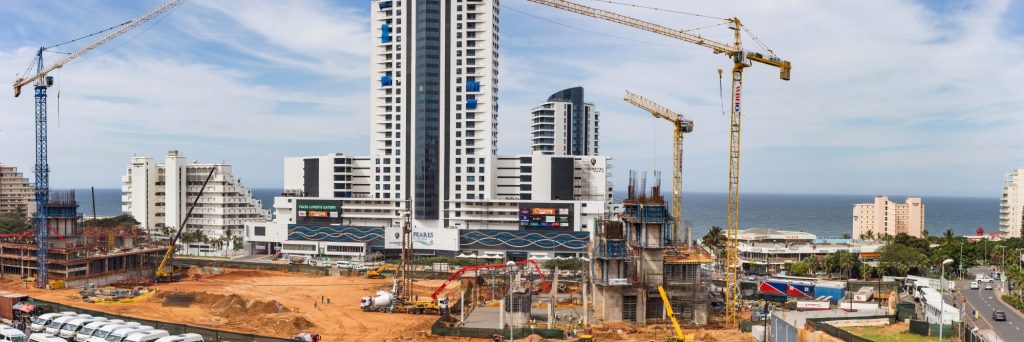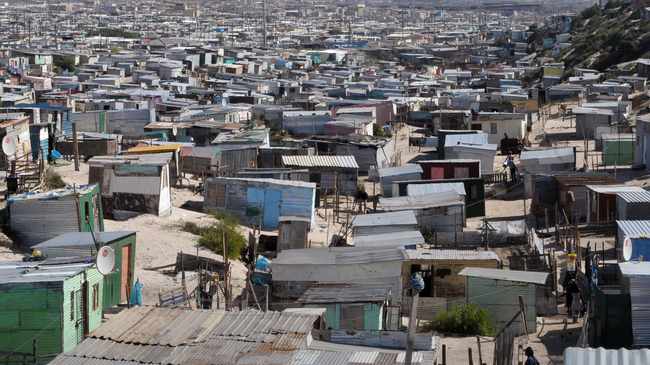WHEN AUTHENTIC GOVERNANCE IN LOCAL GOVERNMENT MEETS MANAGEMENT || 3.0 THINKING

Risimati Mathye
(Pr Tech Eng)PhD Candidate: Civil Eng: University of Jhb Specialist: Integrated Water Resource Management
Do you recall these words by the former president of the republic
– Tata Madiba when he said:
“Real leaders must be ready to sacrifice all for the freedom of their people.” – April 1998
Talking of real leaders, the National Development Plan (NDP) has become the spine of the future of all South Africans because it offers the long-term perspective in the economic inclusiveness. This is the leading beacon that has been in the lips of many in the country. It both identifies and defines the roles various sectors of society need to play in reaching the national strategic thrust.
In its blueprint, the NDP aims to eliminate poverty and reduce inequality by 2030 by growing and inclusive economy- yes ‘inclusive economy”. While the aim of the NDP is well crafted, how is the reality of this institutional framework in the local government level? With some of the best policies (legislatively and institutionally)-in the world, South Africa is at a brink of a structural and institutional collapse from the National, Provincial and Local Government-. This assertion emanates from what the current dispensation and observation from the political economists and social commentators practical service delivery collapse.
The lack of proper housing and portable water to name but a few, are all exacerbated by the scourge of extreme corruption and the decaying model of customer-service-charter as imbedded in the NDP are all in a state of collapse.
It is well to say that the three spheres of government are facing some of the most challenging times our country, since the dawn of our democracy 26 years ago. The level of unhappiness by the country’s citizens in their various socio-economic status and class cannot be overemphasized. Before my ink runs out in this article, it is worth noting that many questions that most commentators are putting out there revolves around the following: Do we still have ethical leadership in local government?, Is this the opportune time for Local government to go through what we call an “Institutional Transfusion” where the incarnation of the old leadership spirits of the past ethical freedom fighters could be re-embodied in our current leaders?
Should we have a new voting system that can give more power to the citizens for the sake of accelerating service delivery?, How far are the young and women involved in re-configuring the current institutional arrangement of local government- specifically beyond the policy making phase?

All these questions are amongst the many that are being asked in a vacuum of this existing leadership crisis in local government and it thus indeed needs “A great awakening of the institutional fundamentals”.
While many service delivery problems exist in local government due to; amongst others- the collapsing structuralreforms, lackofethics, delimitedresource- balance frameworks and lack of accountability; – yet the fact remains that local government needs to go through a transitional process with the aim to producing Authentic governance outlook. Speaking from personal experience, I’ve been in local government all my life- after my 1st under graduate diploma in Civil Engineering, I joined the local government ranks through what was then called “Municipal Management Training Programme” which was a CMIP (Consolidated Municipal Infrastructure Programme) – now called MIG (Municipal Infrastructure Grant).
And for the past 16 years I observed leaders come and go, yet with little or no tangible service delivery thrusts to communities. With high migration to urban cities, the infrastructure is in a state of collapse due to low levels on project initiations and implementations.

Do we blame it on policy makers or implementers?
or do the citizens have the power to hold the policy makers and implementers accountable and who then measures theirs service delivery KPIs and KPA- (because the IDP model is proving to be off tangent on most municipalities- not only is it failing the citizens, it is also not easy to measure on a year- to-year basis). Therefore how do all these translate to the improvement of the socio-economic status of the citizens?
For the past 16 years I spent in local government
– specifically in the metropolitan municipality I work in, I took time to review how transitional leadership is critical and relevant. And this view was influenced by the recently launched District Development Model (DDM) by the sitting President in October/November 2019. Just a short reflection on the DDM, the institutional purpose of this is to close the current vacuum and silos’ mentality that the 3 spheres of government are operating under. While the national government sits as policy makers, Provincial government are expected to be sub-implementers of policies as well as monitors for Local government, the effect of this model would never be realized fully until and unless we have authentic leadership in the 3 spheres of government, let alone in a local level.
The model seeks to align and integrate
the planning and spending trajectory of the 3 spheres of government across the country
This is on the backdrop that municipalities specifically the metros are the drivers of creativity and service delivery innovation. The model is yet to reach its peak and to measure on efficiency thereof. However the fundamental problem existing in local government seems to be far and deeper than what concepts such as DDM can achieve.
The problem local government is faced with is that the DDM could be another monitoring tool with no positive spin-offs, because if the localized IDP models aren’t yielding results – how much more will a DDM that sits in a vacuum of its own can yield tangible outcomes, is this not another good model, yet faced with a collapsed institutional governance in a local level? Maybe this is a question we can answer as the model gets implemented. Just forgive me if I jumped the gun too soon! But the outlook of a DDM on paper and its objectives are superb – perhaps this could do away with laissez- faire leadership (the delegative/deployment style, yet without inherent subject expertise that’s dominant in local government)
Why a need for Authentic Governance
leadership amidst all of the above?
As I borrow a re-phrased version of what an Authentic Leader is – Lloyd-Walker, B. & Walker,
D. (2011) in their “Authentic leadership for 21st century project delivery” believes that this leadership style involves being true to yourself with no mis-representation of oneself. This leadership is centered around self-awareness and self-regulated incorporated at full view of ethical behavior as well as transformational leadership. There is no denying fact that local government has lost tons and tons of skills – specifically in the technical portfolios and this gap keeps growing because the subject masters are joining the Private sector with the aim to re- consult back their expertise at a higher cost.
This trend has been going-on for at least the past 2 decades exponentially so. In an informal discussion I had with a former colleague and mentor of mine who trained me when I left varsity- out of the blue he visited my office and he was surprised to have still found the same old and traditional means of service provision- the filling system, the technical software applications, quality standards and even office set-up were still as they were 10yrs after he left. He said, “I never thought I will see a day where even in a 4IR environment, yet local government institutions in a functional level are still not innovative”- he said “no wonder we have such unhappy citizens
– things have gone worse and this is because we don’t have great and authentic leaders like Madiba anymore”.
When did the wheels come off and where should the spanners go ?
But if authentic leadership was what embodied the great Madiba- what lessons can the current local government institution use to ensure service delivery is accelerated in our local communities- because this is the primary strategic thrust of the government. We cannot escape the fact that (1) Get rid of the deployment without merit model, because this has continued to erode the institutional fiber of local government, (2) Poor skills retention methodologies in strategic and functional levels,
(3) reconfigure the ethical governance model between the political and operational function (4) Implement integration between private sectors and local government in terms of skills transfer on a long-term basis
(5) Review the current funding models and how best to attract the private sector to accelerate service delivery, (6) Create service and infrastructure ownership from communities- by developing socio- economic models that are linked to the NDP e.g. “An inclusive and integrated rural economy”.
While many may agree with me that the local government outlook is bad, few still remain with the beacon of hope that while many institutional and policy frameworks remains, turning the tide through proper implementation can be a reality?-
How then does the local government tap into this hidden capabilities within its structures- one expert- Professor Ed Lawler in describing “Management
3.0 Thinking”- Some of the most successful organization in the world
have transitioned from the traditional and othordox behavior where corporate values and visions are developed not from the “inside out”- but from the “outside-in”- if all the stakeholders of local government (internal and external) are viewing service delivery from the outside in and seeking
to implement these with the most authentic and accountable manner– the NDP, the DDM, IDPs and every other institutional framework or policy in the country will become a reality.
If local government continue collapsing as it is- the state of our service delivery will remain just a paper exercise like many of past policies.
Just like I opened – let me close thus:- Tata Madiba also stated this:
“The truth is that we are not yet free; we have merely achieved the freedom to be free, the right not to be oppressed.
We have not taken the final step of our journey, but the first step on a longer and even more difficult road.
to implement these with the most authentic and accountable manner– the NDP, the DDM, IDPs and every other institutional framework or policy in the country will become a reality.
If local government continue collapsing as it is- the state of our service delivery will remain just a paper exercise like many of past policies.
Just like I opened – let me close thus:- Tata Madiba also stated this:
“The truth is that we are not yet free; we have merely achieved the freedom to be free, the right not to be oppressed.
We have not taken the final step of our journey, but the first step on a longer and even more difficult road.
For to be free is not merely to cast off one’s chains, but to live in a way that respects and enhances the freedom of others. The true test of our devotion to freedom is just beginning.” Nelson Mandela
May these iconic words penetrate into the structural reforms of South African Local Government sector and brings hope to its citizens.
These are dire times where leading is more than a title or a role
– but more of a function that aims to change the
lives of those that stands to receive our services. Prepared by:
Risimati Mathye (Pr Tech Eng)
PhD Candidate: Civil Eng: University of Jhb Specialist: Integrated Water Resource Management




